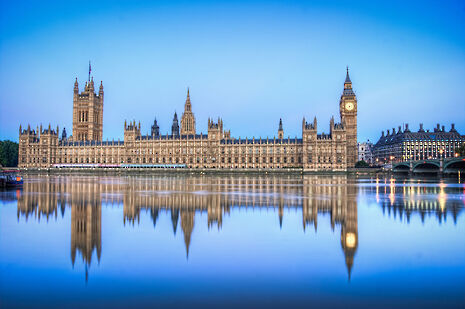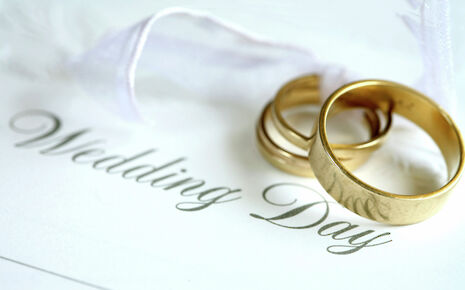The debate over same-sex marriage must remain civil
As the vote on same-sex marriage takes place Alice Udale-Smith argues we need to raise the debate above petty name-calling

Today Parliament is voting on whether to allow same-sex marriages to take place in what will probably be one of the most publically divisive votes of their time in office. Most young people our age naturally fall under the pro same-sex marriage banner and consider themselves ‘good’ and ‘progressive’ people for doing so. Recently, however, I’ve become worried that this is leading to an unbecoming self-righteousness, not to mention blindness to the very real issues that some people have about legalizing same-sex marriage.
Personally I do not believe my own old-fashioned Christian definition of marriage will be affected by other people having a different definition of it. So I don’t take issue with the fact that a vote is taking place, or the concept of same-sex marriage. However, the fact that I need to spend so long convincing you that I am not a ‘bad’ person because I have different views on religion, marriage and the role of the law, says something significant about the way society is dealing with this question.
Most worrying to me is the language that is used to attack those who oppose same-sex marriage – referring to people as bigots, homophobes or even calling them stupid simply because of one difference in belief for me seems worrying close to using ‘gay’ as a derogatory term. Yet amongst the many positive message of support on Facebook and Twitter there are also those filled with hate against anybody who dares hold a different opinion. Calling anybody who doesn’t agree with a certain position bigoted or homophobic is unwarranted, especially when deployed carelessly as a blanket insult. So this article isn’t about the issue of same-sex marriage as such; instead, it’s about how we can elevate an obviously emotive debate above petty name-calling.

For many Christians their concerns over introducing same sex marriage are not just founded in homophobia or bigotry, but a genuine fear for their own religious freedom and right to expression. I cannot speak for other religious groups as I am not part of them, but I imagine similar feelings apply. Some Christians are scared of what the introduction of same sex marriage will mean for their ability to hold their own beliefs, which for some is an unavoidable belief in marriage as a union between one man and one woman. But we should not vilify them for this. However, it does not automatically follow that they wish to prevent others from having a right to choose their own beliefs and lifestyle; they are simply asserting the right to hold an their own opinion.
The Christians I know are mostly concerned that if same sex marriage is introduced they will be forced to carry out marriage ceremonies they themselves do not believe in under the new laws. This fear stems from a desire to protect their religious freedom and heritage not any deep rooted homophobic tendency. Surely this is not such a difficult a position to empathise with?
I believe that such a debate as emotive as same-sex marriage deserves to be treated with understanding and compassion from both sides, not with insulting language and a deaf ear to anything that doesn’t fit our own picture of the world. Dismissing the concerns and fears of anybody who has reservations about the idea of same sex marriage simply polarizes the debate further. Furthermore using terms like homophobia or bigot in a sweeping manner will simply result in them becoming meaningless.
The world is not simply split into ‘good’ people who support same-sex marriage and everybody else left to one side. So next time somebody says they will not be supporting same sex marriage take the time to talk to them and find out why they feel that way, rather than dismissing them out of hand as a bigot. If they really are the hate-filled homophobes they are sometimes portrayed as, then I can only apologise on their behalf. But I promise 9 times out of 10 they will not be that different from you, and a few more frank and honest conversations might be enlightening for everyone.
 News / Meta opens £12 million lab in Cambridge 11 July 2025
News / Meta opens £12 million lab in Cambridge 11 July 2025 Lifestyle / Reflections on rowing10 July 2025
Lifestyle / Reflections on rowing10 July 2025 News / Write for Varsity this Michaelmas13 July 2025
News / Write for Varsity this Michaelmas13 July 2025 Features / How to catch a coat thief13 July 2025
Features / How to catch a coat thief13 July 2025 News / Cambridge Chancellor hopeful accuses opponent of electoral malpractice 9 July 2025
News / Cambridge Chancellor hopeful accuses opponent of electoral malpractice 9 July 2025










